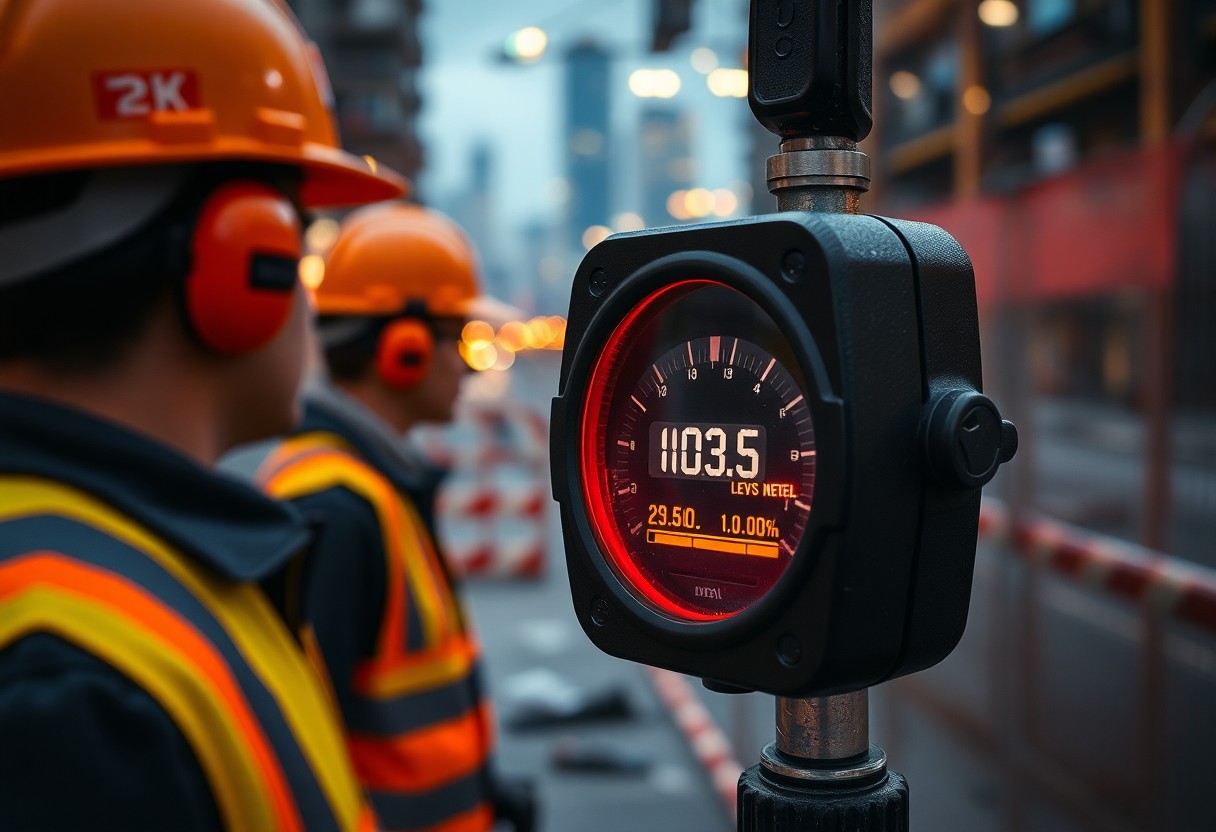Over time, you may have noticed that some environments can be louder than others, and these high sound levels can be more than just a nuisance; they can pose a risk to your health. Understanding the importance of noise monitoring and being aware of the decibel levels in your workplace or community is vital for protecting your hearing and overall well-being.
The decibel (dB) scale measures sound intensity, and it’s vital to grasp how different levels can affect your hearing. Normal conversation typically registers around 60 dB, while sounds above 85 dB can start to cause damage to your hearing over time. For instance, loud machinery, heavy traffic, or amplified music can easily reach these levels. Being aware of these numbers helps you identify when you might need to take preventive measures for your hearing.
It’s important to understand that noise-induced hearing loss can happen gradually, creeping up on you without any immediate warning signs. Certain environments, like construction sites or live music venues, often exceed the safe levels of sound. As you work, it’s advisable to be proactive in monitoring the noise levels around you. Use a decibel meter or a smartphone app to track sound exposure, allowing you to stay informed about whether you are within a safe range.
When you find yourself in situations where noise levels exceed 85 dB, consider employing protective measures. Wearing earplugs or earmuffs can significantly mitigate the harmful effects of excessive noise. Moreover, if you are in a workplace, it’s vital to advocate for proper noise control measures, such as sound barriers and regular monitoring of noise levels. Encourage your employer to conduct noise assessments and provide necessary equipment that can help maintain a safe auditory environment.
Another aspect to consider is taking breaks from high-noise environments. Step away from the noise every hour, even for a few minutes, to give your ears a chance to recover. Limiting your exposure duration can help preserve your hearing health. If you ever feel discomfort or ringing in your ears after exposure to loud sounds, it’s a sign that your auditory system has been stressed, and you should seek professional advice.
Moreover, keeping track of the decibel levels in your environment isn’t just valuable for protecting your hearing; it’s also critical for mental well-being. Constantly being subjected to loud environments can lead to increased stress levels, reduced concentration, and even disruptions to your sleep. Therefore, conducting regular noise monitoring can not only protect your physical health but also enhance your overall quality of life.
In a nutshell, you have a role to play in noise management. By being aware of decibel levels, utilizing hearing protection, and advocating for a safer sound environment, you can ensure that you maintain your hearing health while also fostering a comfortable workplace or community for yourself and others. Stay informed and take action to secure your auditory health today.
